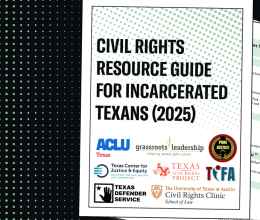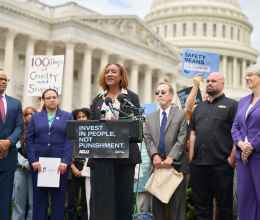
Blame and praise over jail
In need of sanity
The three-year-long Harris County jail overcrowding crisis has not changed and the problem lies squarely at the feet of the local judiciary due to draconian practices that, in some instances, are not even practiced anywhere but Harris County. Decreasing the jail population by 500 is simple and does not put the public at risk.
Just last year, Judge Caprice Cosper agreed that the
Forty percent or around 3,700 of the jail's population have not been convicted of a crime but are merely awaiting trial. A few decades earlier only 25 percent of the jail inmates were these "pretrial detainees." Such a difference equates to over 500 more inmates today.
Several judges even jail defendants who have not promptly hired a lawyer after they have initially bonded out of jail. Such jailing violates the law and points to a
It is time to put the
RANDALL L. KALLINEN president, Houston ACLU
A good example
The Commission on Jail Standards was established by the Legislature in 1975 to correct the problem of only four of
It is clear from their measured response that the
The law's purpose is to protect the rights of all citizens to due process and provide a "safe" ratio of guards for their as well as the prisoners' protection. It recognizes that many who are locked in our county jails are truly, as they are presumed to be, "innocent" and that most of these prisoners will, whether guilty or innocent, be back on the streets one day. How we treat them reveals what kind of society we are.
Balancing the interests of trying and punishing the guilty, protecting society, observing the constitutional rights of all of us and assuring a safe working environment for our jail guards is not an easy task. But there is every reason to believe that
JIM GREENWOOD first chairman of Texas Commission on Jail Standards (1975-78), Houston






